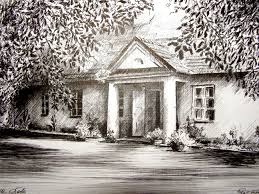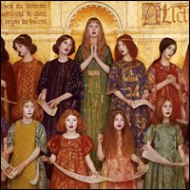Not that it really matters to anyone outside of the milestone-crazed classical music world, but thought I’d pass on this release from my old colleague Frederick Slutsky of the Chopin Project trying to clear up the confusion about Chopin’s birthday. Some say it’s today; others maintain it falls on March 1. How come?
“In 1810, Fryderyk Chopin was born to a French father and Polish mother in Zelazowa Wola, west of the Polish capital Warsaw. The child was named after Fryderyk Skarbek, the eldest son of a Count who had formerly employed his father. They had to seek the Count’s approval to call him Fryderyk so the christening had to wait two months – until April 23 – a delay which, I believe, caused the confusion.”
“Discovered 43 years after Chopin’s death, his baptism register clearly states the composer was born on February 22 and is the strongest evidence cited by those believing this to be the correct date. It is compelling and was an important document in its day but, like many others, I believe it is wrong, containing a simple error, compounded over time.”
“Chopin’s parents always celebrated his birthday on March 1. When accepting membership of the Polish Literary Society of Paris in 1833, Chopin himself gave March 1 as his birthday. Not only that but a letter to him in Paris in 1837, from his mother in Warsaw, began: ‘Dear Fryderyk, the 1st and 5th of March (Saint Fryderyk’s day), are approaching and I am prevented from embracing you.’ That’s good enough for me”.
And according to USC’s Polish Music Newsletter, the debate over the two different dates was good enough for the organizers of the Chopin Bicentennial to make a little publicity hay in the composer’s home country:
“The Longest Birthday” [Najdluzsze Urodziny] celebrated Chopin’s birthday with a continuous concert starting on February 22 and ending on March 1 in Warsaw. This marathon concert was organized by a group of Chopin enthusiasts and was free and open to the public in the Dom Polonii of Wspólnota Polska on Krakowskie Przedmieście.
According to reviewer Gulliver Cragg, “despite the many Chopin events happening around Warsaw and the world:…for Varsovians, the real delight was the 170-hour musical marathon. An estimated 25,000 people attended – to the astonishment of the organisers – what was originally seen as a fringe event…. You could have heard jazz star Grazyna Auguscik as she improvised over Chopin melodies, or an unknown young pianist playing nocturnes at 3am to curled-up couples and solitary night-owls. Nearly 300 musicians signed up to play at ‘The Longest Birthday’, the idea for which came from the doubt surrounding the composer’s actual date of birth.”
Regardless of the date, here’s a peek inside Chopin’s birthplace, featuring pianist Jan Lisiecki in a very nice reading of the Waltz in C-sharp Minor, Op. 64, No. 2, recorded on New Year’s Day 2010.
PS – the Steinway, as you might imagine, does not date from Chopin’s time. In fact, Chopin never played a Steinway…the company didn’t even go into business until 1853…four years after his death.
PPS – The Radio Chopin series introduced me to a fascinating “tone poem” about Chopin’s birthplace by the little-known Russian composer Sergei Lyapunov.
Listen below to the story of how his Zhelazova Vola (Żelazowa Wola), Op. 37, came to be:
Lyapunov said he wished to conjure up the “folk and musical atmosphere, surrounding the great musician in his childhood, perceiving his native land’s image in its purity and simplicity.”




You must be logged in to post a comment.